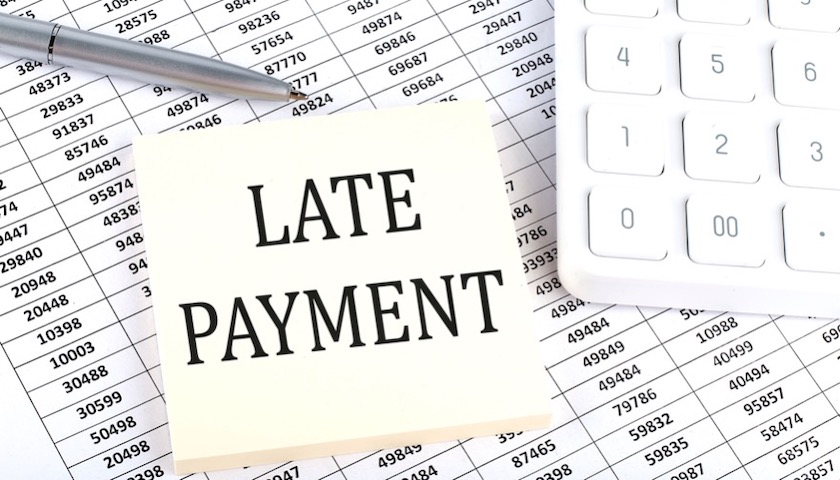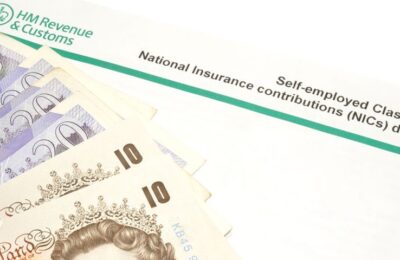The last few years haven’t been kind to many SMEs. The COVID-19 pandemic made trading difficult for many firms, with thousands having to furlough their staff. Brexit increased red tape for companies trading with Europe. The war in Ukraine has caused major issues, pushing up costs of raw materials, fuel and logistics. High levels of inflation are also leading to price increases and higher salary costs. Given this backdrop, it’s not surprising that new research has found that late invoice payments to SMEs have increased exponentially.
During the latter half of 2023, the government announced a series of measures to help fix the problem of late invoice payments. In this post, we look at how SMEs are affected by late payments and then outline the government’s response to the problem.
Late invoice payments up 7%
According to Consultancy.uk, research by PwC found that the length of time taken for invoices to be paid has reached a 5-year high. On average, invoices are being paid in 54.1 days, up 7% on the previous year. This means that firms are waiting nearly eight weeks to be paid.
The problem for SMEs isn’t just the slow pace at which invoices get settled, but the amount of capital that’s tied up in late invoice payments. Research by analysts Dun & Bradstreet has found that the average SME in the UK is owed £147,141 in late payments.
12% of firms owed over £250,000
The situation is worse for some SMEs. The research also found that 12% of mid-sized firms are owed between £250,000 and £500,000. Some industries also fare worse than others, with firms in the retail, construction and financial services sectors all being owed more than £150,000 on average.
How to solve late invoice payments
While it’s difficult to solve the problem of late invoice payments, there are practical steps you can take.
First, you can sign up to the Fair Payment Code and encourage your clients and suppliers to do the same. Signatories commit to a range of criteria, including paying 95% of invoices from businesses with fewer than 50 employees within 30 days.
Secondly, you can mitigate the problem of late payments by charging interest. You can charge this at the Bank of England base rate + 8% for business-to-business transactions. The Gov.uk website has more details on when you can charge interest and how to calculate it. If you need to pay for debt recovery, you can also charge a fixed sum on top of any interest. This is £40 for up to £999.99 of debt, £70 for debt between £1,000 and £9,999, or £100 for debt of £10,000 or more.
Government action on late invoice payments
Back in October 2023, the government announced three new measures to tackle late invoice payments. It did this because it has gauged that paying SMEs on time could boost the economy by £2.5 million each year. These measures are to be included in a wider government review on Cash Flow and Prompt Payment.
- Extending the Reporting on Payment Practices and Performance Regulations 2017. Essentially the government will legislate to extend payment performance reporting obligations. It will introduce new metrics for reporting, including invoices paid late.
- Providing more advice to SMEs on negotiating payment terms. It will also offer advice on how going digital can help firms get paid quicker.
- Extending the powers of the Small Business Commissioner. The Commissioner will be able to undertake investigations and publish reports on the basis of anonymous information and intelligence. This will require primary legislation, so may take some time to become law.
The government will also strengthen the Prompt Payment Code so that signatories have to renew their commitment every two years.
No government contracts for late payers
The government also announced in the 2023 Autumn Statement that, from April 2024, any company bidding for a government contract must prove they pay their invoices within an average of 55 days. This will drop to 45 days in April 2025 and to 30 days in subsequent years.
If firms don’t meet these terms, central government will exclude them from bidding for contracts. Similarly, since October 2023, government departments have had to pay their invoices within 30 days.
Help with credit control
While government measures to resolve late invoice payments are welcome, many SMEs will still have to tackle late payments. Unfortunately, most small businesses aren’t large enough to have in-house credit control teams. This can mean that they have limited resources for chasing late payments. If you are in this position, you may wish to consider outsourcing your credit control.
About Jon Pryse-Jones
Since joining THP in 1978, Jon Pryse-Jones has been hands on with every area of the business. Now specialising in strategy, business planning, and marketing, Jon remains at the forefront of the growth and development at THP.
An ideas man, Jon enjoys getting the most out of all situations, “I act as a catalyst for creative people and encourage them to think outside the box,” he says, “and I’m not afraid of being confrontational. It often leads to a better result for THP and its clients.”
Jon’s appreciation for THP extends to his fellow team members and the board. “They really know how to run a successful business,” he says. He’s keen on IT and systems development as critical to success, and he continues to guide THP to be at the cutting edge and effective.
Read more about Jon Pryse-Jones More posts by Jon Pryse-Jones











